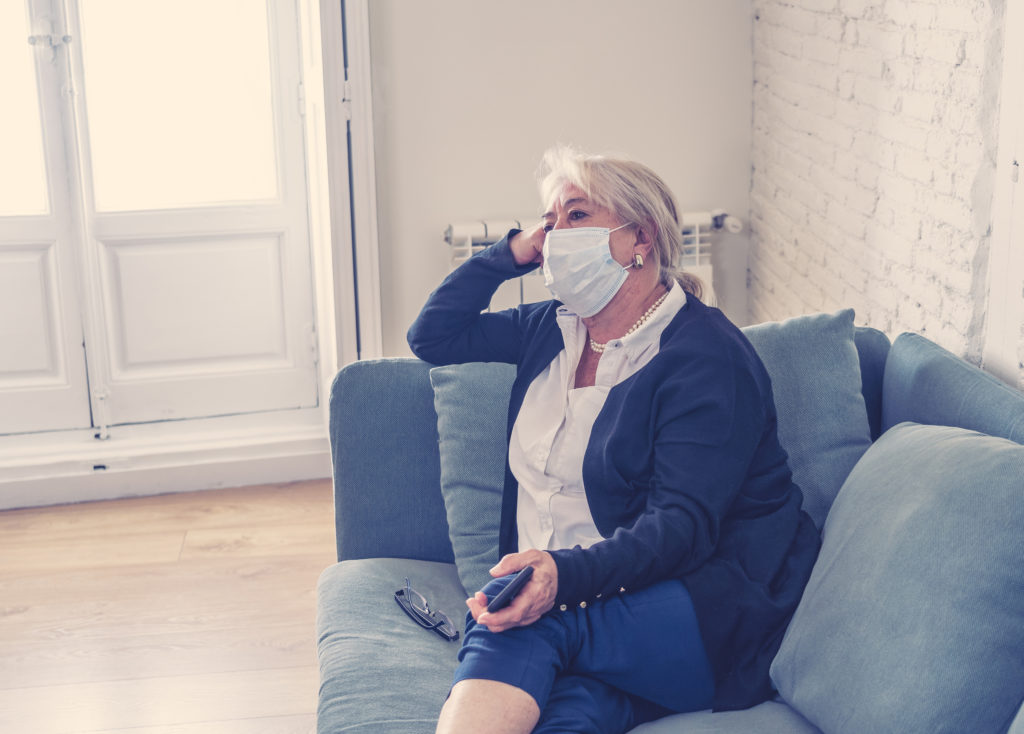COVID-19 has taken over 585,000 American lives, but we often don’t hear about the people who have developed “Long-Haul” syndrome- effects from having contracted COVID that can last weeks, months, or leave people with what may be permanent disabilities. Recent studies suggest approximately 10% of people who get COVID are affected by long-haul syndrome. That means in Bucks County alone, close to 6,000 people may have or will experience the post-COVID constellation of symptoms that could leave them unable to work or get back to life as they knew it.
This significant subset of people who develop long-haul syndrome while recovering from COVID don’t seem to have much in common. Even people who had mild cases and were never hospitalized can still end up developing a myriad of lingering, concerning after effects. Many of these patients could benefit from additional “rehabilitation” therapies long after Covid has technically cleared their systems.
What is Covid-19 Long Haul Syndrome?
The short answer is – it is many things. The honest answer is that we are learning more about Covid Long Haul Syndrome (CLHS) every day.
According to the CDC, the most common lasting symptoms are fatigue, shortness of breath, cough, joint pain and chest pain. Other issues include cognitive problems, difficulty concentrating, depression, muscle pain, headache, rapid heartbeat and intermittent fever.
Respiratory Symptoms
A bad case of COVID-19 can produce scarring and other permanent problems in the lungs, but even mild infections can cause persistent shortness of breath — getting winded easily after even light exertion.
Lung recovery after COVID-19 is possible, but takes time. Experts say it can take months for a person’s lung function to return to pre-COVID-19 levels. Breathing exercises and respiratory therapy can help.
Heart Problems After Covid-19
Covid-19 infection can leave some people with heart problems, including inflammation of the heart muscle. In fact, one study showed that 60% of people who recovered from COVID-19 had signs of ongoing heart inflammation, which could lead to the common symptoms of shortness of breath, palpitations and rapid heartbeat. This inflammation appeared even in those who had had a mild case of COVID-19 and who had no medical issues before they got sick.
Brain Fog or Neurological Problems
Neurologist Arun Venkatesan, M.D., Ph.D. of Johns Hopkins, says, “Some individuals develop medium to long-term symptoms following COVID infection, including brain fog, fatigue, headaches and dizziness. The cause of these symptoms is unclear but is an active area of investigation.”
It is important to take this disorienting symptom seriously and consult with your physician. But here are few tips that may help to clear some of these symptoms from the researchers at Harvard.
- Perform aerobic exercise. You may need to start slow, perhaps just two to three minutes a few times a day. While there is no established “dose” of exercise to improve brain health, it’s generally recommended you work toward 30 minutes a day, five days a week.
- Eat Mediterranean-style meals. A healthy diet including olive oil, fruits and vegetables, nuts and beans, and whole grains has been proven to improve thinking, memory. and brain health.
- Avoid alcohol and drugs. Give your brain the best chance to heal by avoiding substances which can adversely affect it.
- Sleep well. Sleep is a time when the brain and body can clear out toxins and work toward healing. Make sure you give your body the sleep it needs.
- Participate in social activities. We are social animals. Not only do social activities benefit our moods, but they help our thinking and memory as well.
- Pursue other beneficial activities, including engaging in novel, cognitively stimulating activities; listening to music; practicing mindfulness; and keeping a positive mental attitude.
Other Long-Haul Symptoms
Other Long-haul symptoms may be more subtle and easier to overlook. Postural orthostatic tachycardia syndrome, or POTS, is a condition that affects blood circulation, and people who have survived COVID-19 may be more vulnerable to it. Tae Chung, M.D., who specializes in physical medicine and rehabilitation, says “POTS can leave survivors with other neurologic symptoms, including continuing headache, fatigue, brain fog, difficulties in thinking or concentrating, and insomnia.”
Even in patients without POTS, persistent post-COVID-19 insomnia, or “COVID-somnia” is an increasingly common complaint among COVID-19 survivors.
Mental health issues may come into play in the form of anxiety or depression particularly if residual symptoms persist or in the case of people who may have had a particularly bad case of Covid.
Recognizing What You Can Do
At this point in time, there is no way of knowing who will suffer from Long-haul complications or what those complications might be. We do know that long-haul symptoms have been reported in virtually every age group – including children.
As my Mother always told me; “An ounce of prevention is worth a pound of cure.”. At this point in time, following current CDC guidelines and getting the Covid-19 vaccination should be strongly encouraged.
And if you feel that you might be suffering from the after-effects of Covid-19 and are still struggling to regain your health or top form, consult with your physician. Post-Covid Long haul programs specifically designed to help those with lingering symptoms are being developed as I write this. Or – you can ask your physician to refer you to a good Community-Based Palliative Care program such as the one offered at Chandler Hall, in lower Bucks County, PA. The amazing team at Chandler Hall has been helping folks manage symptoms of long-term respiratory, cardiac and neurological disorders since 1973.
If you feel that a conversation with a local, trusted source might be the first step to getting you the information that you need to make an informed decision, contact Maureen Salvucci at 267-291-2270 There is no obligation and that conversation just might give you the information that you need to start your path to full recovery.
